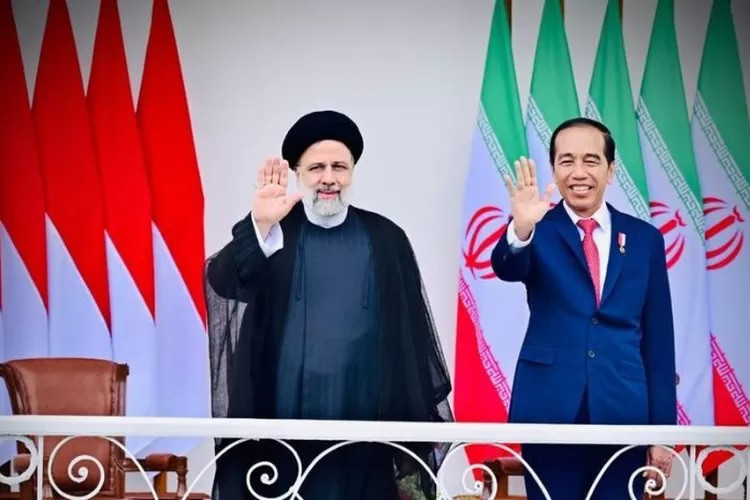July 11, 2024
Jakarta Indonesia is seeking to ratify a Preferential Trade Agreement (PTA) with Iran, which many hope will open the door for local products to markets in Central Asia, South Asia and the Middle East, but experts have urged caution given Iran’s geopolitical situation and sanctions from Western countries.
The House of Representatives (DPR) Sixth Committee, which oversees trade and investment, on Monday approved the government’s early ratification of the trade agreement with Iran so that it can come into effect in January next year.
The agreement will be the second trade pact between Indonesia and a Middle Eastern country, following the Comprehensive Economic Partnership Agreement (CEPA) signed between Indonesia and the United Arab Emirates in July last year. Jakarta has also begun negotiations with Saudi Arabia on a similar pact.
Iran is not a major trading partner for Indonesia, ranking just 62nd in exports to Tehran last year, with exports worth just $198.1 million, less than 1 percent of the $64.9 billion in exports to China, the archipelago’s main trading partner, during the same period.
Iran also has few exports to Indonesia.
However, Trade Minister Zulkifli Hasan explained that Iran is strategically located and can serve as a trade hub between Indonesia and other countries in the region.
“At the same time, the relatively high tariff structure in Iran is the main obstacle for Indonesian products to be competitive in the country. Therefore, we hope that the PTA will increase our exports to Iran and its neighboring countries,” Zulkifli explained to lawmakers on Monday.
Mohamed Faisal, secretary-general of the Center for Economic Reform (CORE), agreed that while Iran is not the only gateway, it has the potential to be a major gateway for Indonesia to expand into other Asian countries.
“It is an opportunity for Indonesia to sell its manufactured goods such as clothing, cars, food and beverages, and halal products. [Islamic] “It’s about values,” Faisal told The Jakarta Post on Wednesday.
M. Abyan Habib Zakhwan, a research fellow at the Center for Strategic and International Studies (CSIS), said the PTA does not guarantee that Indonesian products will be accepted in countries surrounding Iran.
According to him, the outcome will depend on the importance of the trade agreements Iran signs with these countries.
“Indonesia itself is in the process of negotiating trade agreements with other countries in the region,” Habib told The Post on Tuesday.
The Eurasian Economic Union (EAEU) member country shares a border with Iran, and Indonesia is aiming to conclude a free trade agreement (FTA) with the union this year.
The EAEU is an economic union consisting of Armenia, Belarus, Kazakhstan, Kyrgyzstan and the Russian Federation, some of whose member states are landlocked.
Jakarta has been negotiating amid Western sanctions against Russia over the war in Ukraine and Belarus for its involvement in the conflict.
Play Smart
Habib also urged the government to reassess which Iranian entities and products are currently subject to sanctions so as to mitigate risks to Indonesian products’ reputation, market access and competitiveness in the West.
“The use of Iranian raw materials for strategic exports to the G7 should be avoided.” [Group of Seven] “Countries should ensure that their strategic government agencies do not use any sensitive technological products from Iran,” Habib suggested.
Iran has faced tough Western sanctions and international isolation for years, particularly from the United States.
In April, amid rising tensions in the Middle East, the United States imposed new sanctions on Iran after it launched missile and drone attacks against Israel, and the European Union followed suit the same month.
Zulkifli acknowledged the potential geopolitical risks associated with a PTA with Iran but assured that the government had calculated the risks.
He argued that opting for the PTA would allow Jakarta to choose products and exempt certain high-risk products from Tehran, while CEPA applies to all goods and services flowing between the two countries.
” [trade war between West and East]We have a chance [to explore various markets]”If we continue to rely on traditional markets and lose our creativity, we will not grow,” Zulkifli said.
CSIS’s Habib added that in an increasingly protectionist geopolitical environment, governments should focus not just on developing alternative markets but also on fighting for a more functional global trade.
He suggested that efforts were still needed to find compromises to resolve contentious trade-related issues with existing trading partners.
“Alternatively, the government could make agreements with countries that are geographically closer to Europe, such as Turkey, Jordan, Morocco, Egypt and Tunisia,” he explained.
Krisna Gupta, a senior research fellow at the Indonesia Center for Policy Studies (CIPS), opined that protecting existing markets can go hand in hand with establishing new ones, as each has its own benefits.
But he suggested it would be difficult to advance global trade without the willingness of major powers, particularly the United States.
“I agree that these issues need to be resolved, but it will be difficult because it’s all a matter of political will,” he said. post on wednesday.


